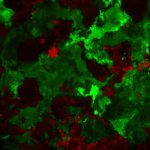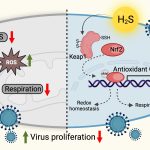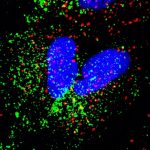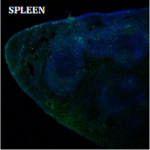
Monoclonal antibodies are used in immunotherapy to target diseased cells and treat psoriasis, cancer and autoimmune disorders. Delivering them inside a cell, however, requires a vehicle that can cross the cell membrane. Virus-Like Particles (VLPs) have this ability. VLPs have the structural components of a virus but not the genetic material, which makes them non-infectious.
Researchers led by HS Savithri in the Department of Biochemistry have now developed a VLP of a plant virus called the pepper vein banding virus (PVBV) to use as a possible vehicle. They genetically engineered the VLPs by adding the antibody-binding domain of a bacterial protein to an exposed region of the VLP’s coat protein, resulting in what is called a chimeric VLP.
This chimera, when exposed to the antibodies that need to be transported, can recognise and bind to them to form a stable complex. These antibody-bearing chimeric VLPs can enter mammalian cells and deliver the antibody inside, where it can neutralise the target molecule.






